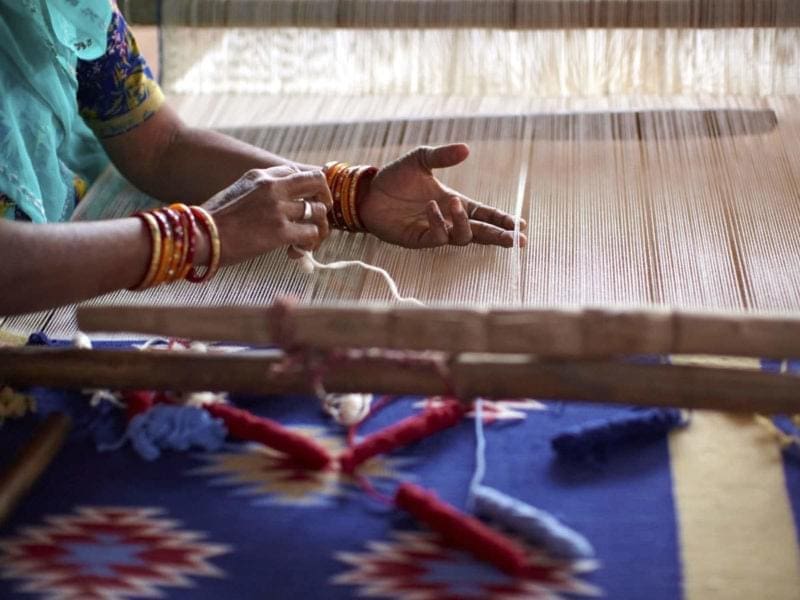Players hit by sluggish exports & rising imports from Bangladesh and Lanka, one-third of production capacity lying idle.
Indian textile and clothing industry players say one-third of their production capacity is lying idle due to sluggish exports, poor domestic demand, and growing imports from Bangladesh and Sri Lanka, and have sought immediate relief from the government. Spinning mills across the country recently cut down their production by 15% to 50% as a damage control exercise due to excess stock lying unutilised in their godowns, according to trade association body Confederation of Indian Textile Industry (CITI).
“Textile and clothing segments are presently going through a deep crisis due to uncompetitive fibre prices, declining exports, in competitiveness of our products in international markets, embedded taxes not getting refunded, and lack of working capital, among others,” said Sanjay Jain, chairman of the confederation. Exports of cotton yarn in the first quarter ended June have fallen 33% to 226 million kg from 338 million kg a year earlier, he said. Domestic demand has fallen 10-15% due to poor consumer sentiment impacting garment sales and festive season expectations. To overcome the situation, the industry — which claims to provide direct and indirect employment to more than 100 million people —has urged the government to extend its tax incentive scheme to the entire industry and transfer subsidies directly to cotton farmers’ accounts through direct benefit transfer (DBT) instead of offering a minimum support price (MSP) for their produce.
CITI wants state governments to avoid incentivising new spinning mills for three years “to prevent existing units from turning into non-performing assets (NPAs) due to excess capacity”, Jain told ET. It is also seeking special moratorium for spinning loans to ensure they don’t slip into NPAs due to the un-favourable environment.
The industry wants the government to extend the Rebate of State and Central Taxes and Levies (RoSCTL) scheme, which is at present available on export of garments and made-ups (bed linen), to be extended to export of cotton yarn, too, to make the entire industry internationally competitive. RoSCTL allows reimbursement of duties on export inputs and rebate on embedded taxes such as agricultural cess, mandi tax, and power and fuel surcharge incurred in the production process through freely transferrable scrips. “The RoSCTL scheme is compliant with the World Trade Organization (WTO) norms and can be immediately implemented,” said KV Srinivasan, chairman of Cotton Textiles Export Promotion Council (Texprocil). “It will give us an advantage while exporting cotton yarn over Pakistan and Vietnam who get duty free access to China and European markets.” RoSCTL refund can vary from 3% to 5% depending on the products, Srinivasan said. Currently, Indian exporters pay a 4% duty to export cotton yarn to China and Europe. Bilateral trade agreement with China for yarn and fabric and with the EU, Australia and Canada for apparels and made-up will further push sales, industry players said.
India, which was the world’s second largest exporter of textile and clothing products after China during 2014-17, fell to fifth position in 2018 falling behind Germany, Bangladesh and Vietnam, they said.

